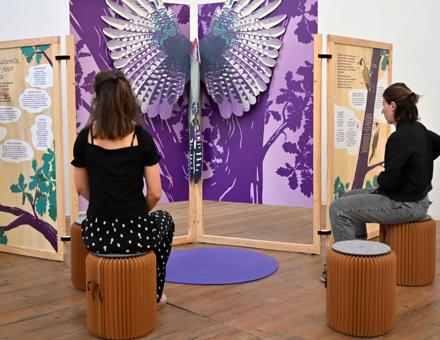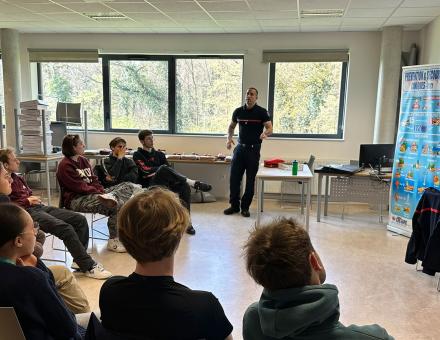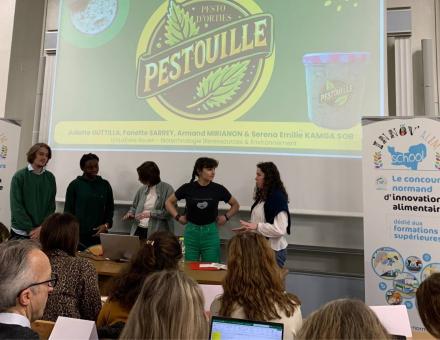Amelia Connell, a student at UniLaSalle Rouen, took part in an international coffee forum in Colombia, following an exciting and instructive internship. Find out how she highlighted a highly promising agricultural material: biochar.
Amelia Connell, an engineering student on the i-SAFE course at UniLaSalle Rouen, took part in a coffee forum in Colombia, with the company that had hosted her internship a few months earlier. It was an exciting event, which enabled her to get involved in the coffee industry alongside its many stakeholders. We followed her as she prepared for and took part in the event, and tell you all about it!
From the internship to the International Coffee Summit
The Producer Roaster Forum - Farm Summit is an event originating in Honduras, which takes place every year to bring together the various players in the South American coffee industry. The event features a multitude of nationalities: over 10 producers and over 30 roasters! In the midst of the stands, conferences, round-table discussions and various competitions took place, all centred around coffee growing. The aim? To promote holistic, organic and regenerative farming practices, demonstrating how it is possible to increase profits by adapting to climate change. For Amelia, events like this are essential to sustainable progress. “Especially when it comes to such a large industry, with so many players, it's crucial to be able to come together, so that we can make informed decisions and act collectively.”
For the first time, this 2024 edition took place on a coffee farm, Hacienda Cafetera La Pradera, in Santander, Colombia. It was on this farm that Amelia wrote a report during her first-year internship a few months ago. Recruited by the Purity Coffee company, she worked in collaboration with farmers, a scientist and an economist. Her report focused on the potential benefits of biochar, a soil improver tested on the company's 100% organic, regenerative South American coffee plantations. Purity Coffee therefore invited her to present the results of their research on biochar and its applications alongside farmers and experts at the Colombian forum on October 17 and 18. It was an experience as stressful as it was unique, but it didn't scare the young student, who is determined to see her project through to the end.
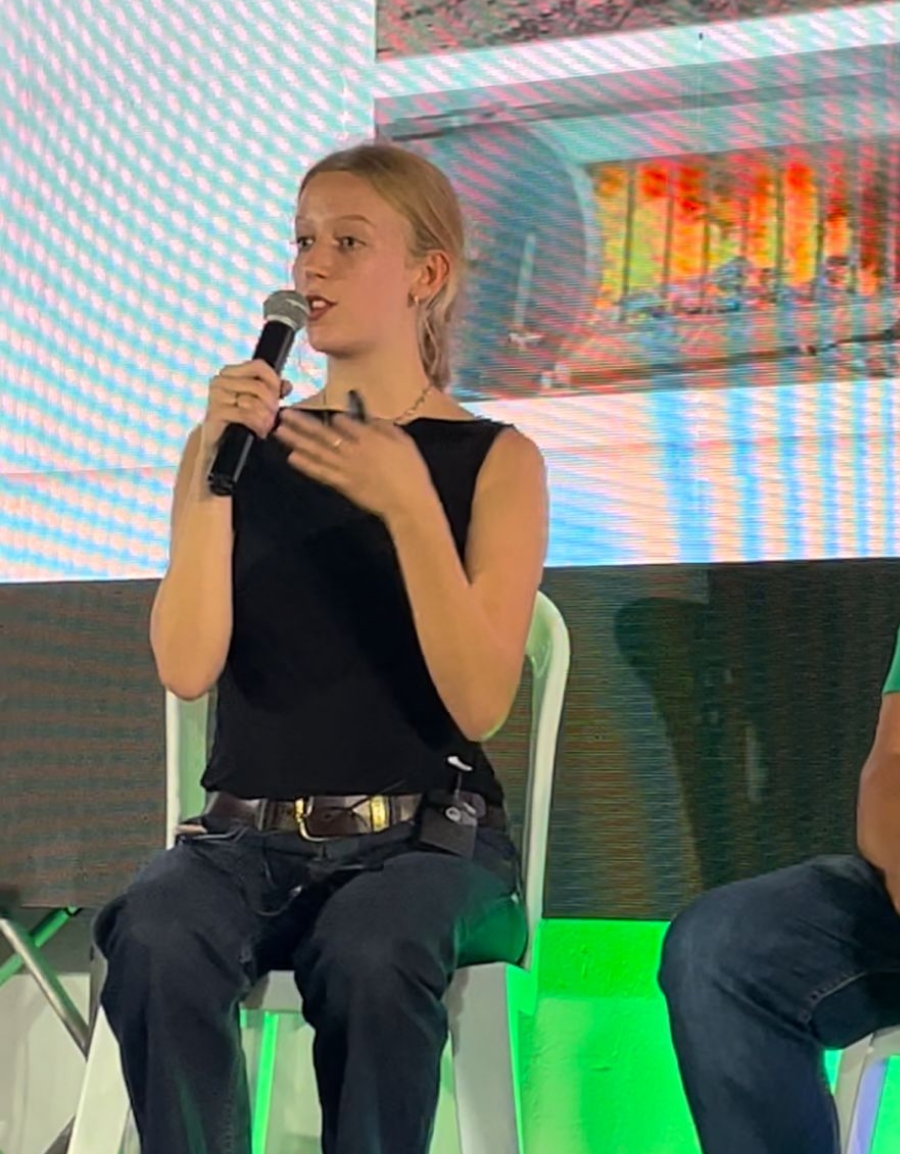
Biochar, a natural ally for fertile soils
Before leaving for the Forum, Amélia was able to rely on her classmates and teachers for practice. The presentation was a great opportunity for her to talk about her project and get some advice! Proud and convinced by her experience, she explains how the company, “very innovative, is looking to create a new ‘Health’ label, focused on biodiversity and soil health”, hence its research into biochar. But what exactly is biochar?
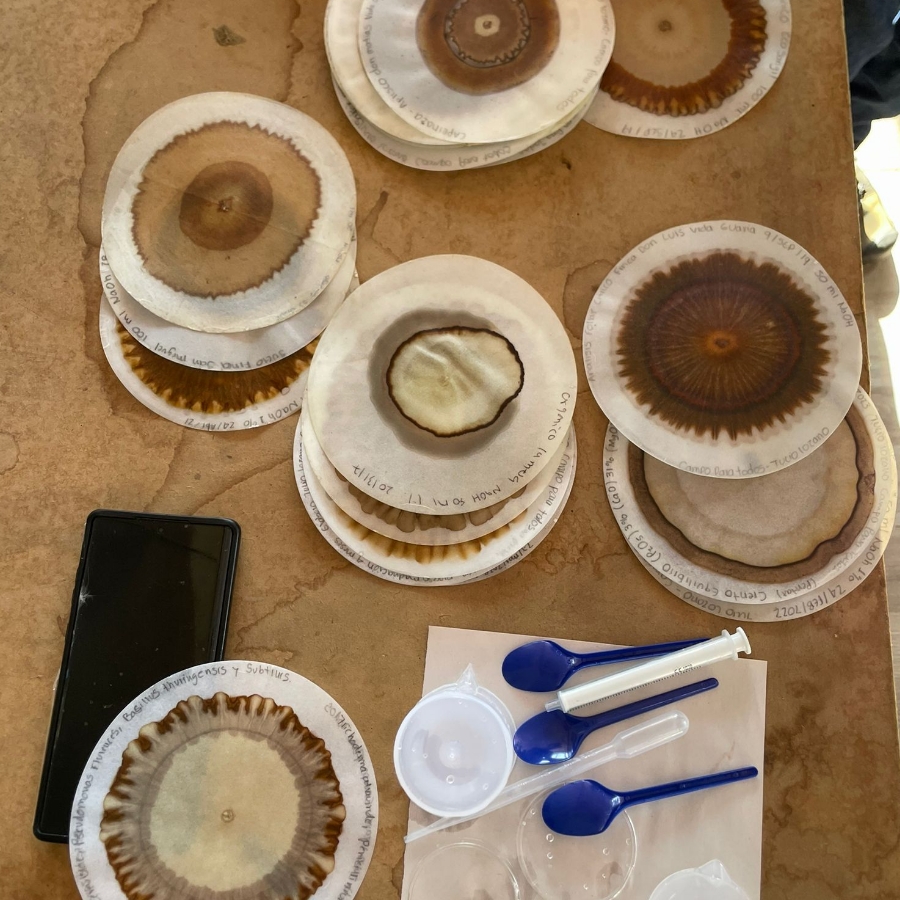
Biochar is a porous, low-density material that can be added to soils prone to overexploitation and acidification. It is formed by thermal decomposition in an anaerobic (oxygen-free) environment, through a process known as pyrolysis. What decomposes is the “coffee husk”, the dry envelope surrounding the beans, which is generally not reused in coffee growing.
Avoiding the combustion process helps prevent soil acidification. Amelia continues: “We transform dead soil into living soil. In fact, biochar enables the soil to absorb more carbon dioxide, better resist erosion, maintain water in the soil, stimulate microbial activity... In short, a highly effective and promising solution for the coffee industry, which suffers from poor soil health!"
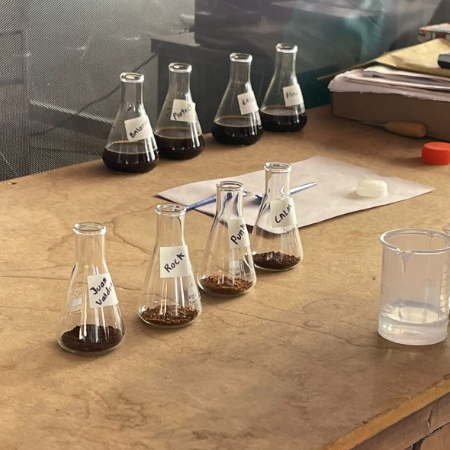
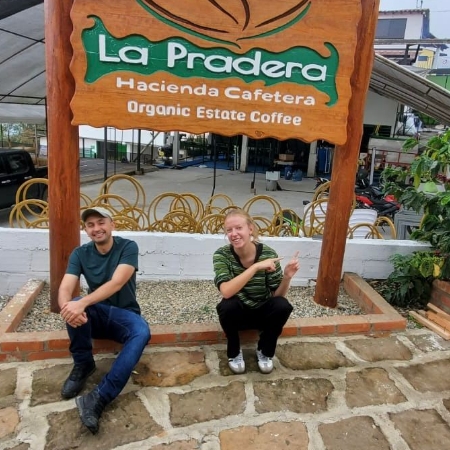
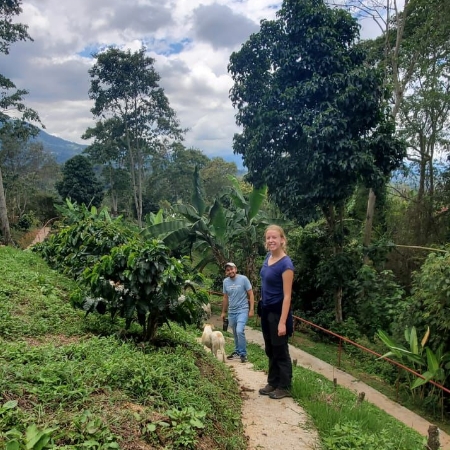
Many of the forum's farmers and speakers came to chat with Amelia after her talk. For her, it was an opportunity to meet experts such as Tulio, a researcher who impressed her by working on “soil chromatography”, a scientific technique that reveals the composition and health of the soil by visualizing its components.
The opportunity to go to Colombia for this forum, which Amelia was able to seize after her internship, opens up a wide range of prospects for her, and is perfectly in line with the objectives of her training as an agricultural engineer on an international course.
To find out more about Amelia's English-language training :
Agro, Food & Environmental Engineering
An article written by Zoé Lapeze, student engineer at UniLaSalle Rouen.



